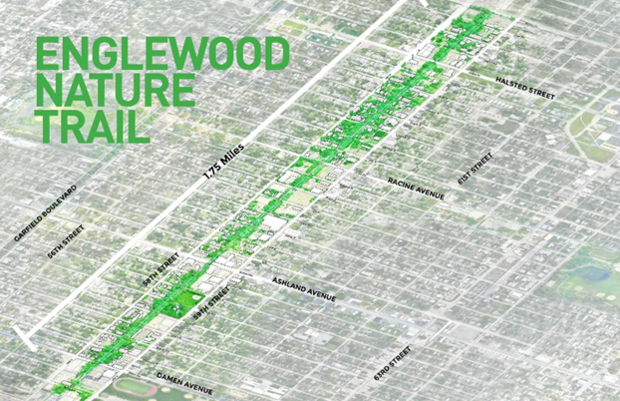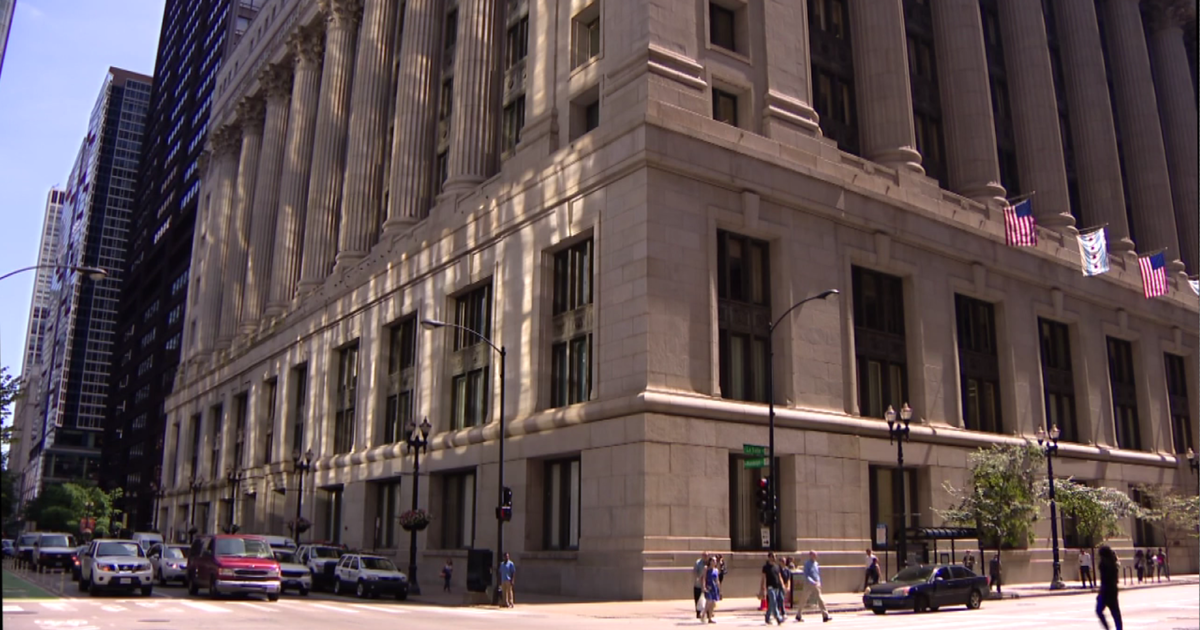$20 million in federal funds awarded for Englewood Nature Trail project
CHICAGO (CBS) -- A total of $20 million in federal grant coming is coming to support the development of the Englewood Nature Trail – a project to convert an abandoned railway corridor into a multi-use path.
Mayor Lori Lightfoot, U.S. Sens Dick Durbin and Tammy Duckworth (D-Illinois), and U.S. Rep. Danny Davis (D-Illinois) announced Thursday that the federal funding had been awarded.
The project would convert a 1.75-mile abandoned railway corridor into a multi-use path – a concept similar to the Bloomingdale Trail at The 606 in Bucktown and Logan Square, or The High Line on the West Side of Manhattan in New York City.
The Englewood Nature Trail would extend from Wallace Street on the east to Hoyne Avenue on the west along the abandoned railway embankment between 58th and 59th streets.
CBS 2's Jackie Kostek hiked up onto the trail Thursday with Anton Seals Jr., executive director of Grow Greater Englewood. They entered only a few steps away from busy Halsted Street, but instantly a different world.
"It's like, where am I?" Seals said. "That's what it always feels like when people come up."
He called the trail entrance "a portal to something else."
The city noted the rail corridor was constructed in 1917, when the Pennsylvania Railroad created an elevated embankment to serve industrial businesses along 59th Street and to link up with other rail lines nearby.
The last time trains even operated on the railway was the early 1960s, by which point most of the industries on 59th Street were gone.
The plan for the Englewood Nature Trail came after public input in 2014 led to the Chicago Plan Commission's "Green Healthy Neighborhoods Plan," the city said. The proposal envisions the trail "serving as the spine of an urban agriculture district that occupies adjacent land, along with other productive uses," Mayor's office said.
The city acquired the railway corridor in 2018 from Norfolk Southern Railroad. The allocated $6 million this past spring for phase one of design funding.
The $20 million takes the trail from a concept to "this is happening," Seals said.
Long-term, the city hopes the trail will connect the surrounding area with park space and multi-use paths.
"This equity-focused investment in the Englewood community will serve as a major catalyst for revitalization," Mayor Lightfoot said in a news release. "The Englewood Nature Trail is both a physical connector and pathway to community connectivity and opportunity. The trail, which was importantly developed as part of a community-led process, will benefit Englewood residents for years to come."
Seals' Grow Greater Englewood is one of the key organizations working on the redevelopment. Seals said the first design phase will wrap in October, followed by engineering and structural designs.
"We want a trail where people can come and have a respite from a hard city's day; a trail where you have activities for children and seniors and families," Seals said. "We want a place where there's commerce and there's kind of a throughline for agriculture."
The main entrance to the Englewood Nature Trail is planned to be at Englewood Plaza at 58th and Halsted streets. One of the main ideas is to connect several different urban farms - like one near Englewood Plaza run by Urban Growers Collective.
"We want the experience to be people can walk along the trail, come down at some of the access points, check out a few different farms, get some fresh produce," said Bweza Itaagi the steward over the Englewood Nature Trail with Grow Greater Englewood.
In her role with Grow Greater Englewood, Itaagi is essentially in charge of making sure the community is involved in every part of the development process for the trail. She is also the co-owner of a farm called Sistas in the Village.
"If this trail is built and no one feels like they had input, then it's unsuccessful," she said.
But beyond the "for Englewood, by Englewood" measure of success, Itaagi wants people to feel what she feels on the trail - peace.
"There's something very indescribable about being surrounded my nature and feeling safe," she said. "This trail has all that potential to make people feel comfortable and safe in a natural environment."
The funding came from the U.S. Department of Transportation through the Rebuilding American Infrastructure with Sustainability and Equity (RAISE) discretionary grant program. The funds will go toward a detailed design for the trail – which will cross 26 viaducts from east to west.
The plan calls for nine entrances for people to get onto the trail.
The Englewood Nature Trail is part of a greater vision of trails and open spaces around the city. The citywide vision map calls for 48 miles of new trail to supplement an existing network of 79 miles that includes the Lakefront Trail.
Grow Greater Englewood expects the full redevelopment to take about five years, but says that could be sped up with the new funding.
The organization wants the trail to serve the Englewood community first, but also the greater Chicago region too – with the trail, farms, and businesses, many of which are Black-owned.





